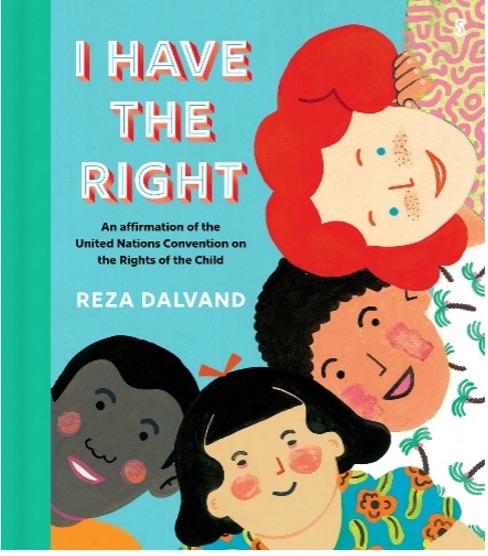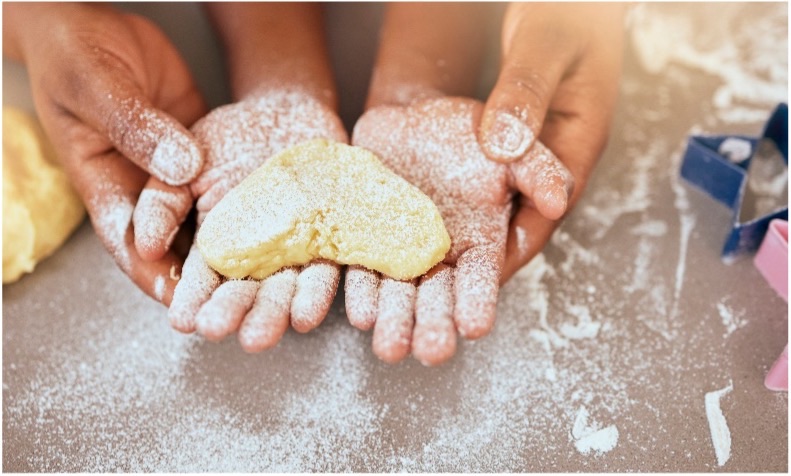December 2023 newsletter
Better together
How are you spending time with children, families, and colleagues this holiday season? Remember we have the important responsibility of supporting and caring for one another. We support children's wellbeing and that they know and believe their true value and worth. It is our responsibility to make sure that children’s rights are upheld, and that their voices are heard. As we celebrate with family and friends, remember that we are better together. We can lift one another up, inspire each other and create spaces for all to feel safe and cherished.
UNICEF Canada explains wellbeing for children and youth as a state of mind. Children can answer “yes” to the question, “Am I happy and respected?” Children experience wellbeing when they can say:
- I am secure;
- I belong;
- I am learning;
- I am healthy;
- I am free to play;
- I am participating;
- I am protected;
- I am connected to my environment (UNICEF Canada).
Children have the power and potential right now to help others. They can make choices about their interests and activities. Children are an inspiration. They are ready and willing to change the world – starting today!
The true measure of a nation’s standing is how well it attends its children – their health and safety, their material security, their education and socialization, and their sense of being loved, valued, and included in the families and societies in which they were born.
Unicef Report Card 7
Do you know?
The Government of Yukon begins review of the Child Care Act
The Yukon’s Child Care Act came into force on July 1, 1990, replacing the Day Care Act of 1980. It is the law that licensed child care programs must follow. The Act also describes the care and supervision of children in these programs.
The Yukon government is reviewing the Child Care Act so that it reflects what we now understand is important in an early learning and child care environment. To learn more, visit the Child Care Act Review engagement page.
Wellbeing and occupational rights
Together, we can contribute to occupational well-being
To effectively nurture children’s wellbeing, we must also work together. We can exercise our rights and responsibilities as educators, employees and team members. “We all want to keep healthy and safe at work. Positive and collaborative workplaces are key to protecting workers’ physical and psychological health and safety. We can all influence workplace culture by the things we say and do to encourage safe and acceptable behavior” (Worker's Safety and Compensation Board Yukon).
As an employee, you have both rights and responsibilities under Yukon legislation. As an employee in a Yukon organization, you have three key rights:
- the right to know about hazards in the workplace;
- the right to participate in health and safety activities in the workplace;
- and the right to refuse unsafe work.
You also have the responsibility to contribute to a positive workplace. This keeps yourself and others physically and psychologically healthy and safe.
Creating a culture of wellbeing
Psychological health and safety is our collective responsibility
The Canadian Centre for Occupational Health and Safety (CCOHS) helps organizations support psychological health and safety in the workplace. There are strategies they have identified and promote. Their website lists and explains the organizational factors that impact health and wellbeing. (Canadian Centre for Occupational Health and Safety).
It is important for each of us to contribute to a workplace of civility and respect. According to the CCOHS, a civil and respectful workplace leads to:
- greater job satisfaction;
- a more positive attitude;
- improved morale;
- better teamwork;
- enhanced relationships at work; and
- a reduction in turnover.

Book Nook
I have the right to have a name and a nationality.
I have the right to the best healthcare.
I have the right to an education.
I have the right to a home where I can thrive.
I Have the Right introduces children to the universal rights they are entitled to under the United Nations Convention on the Rights of the Child.
This book is perfect for “parents and carers looking for books that will introduce their kids to the experiences of children growing up in countries and cultures different to their own, and help them develop empathy” (from the publisher).
Grow
“By developing responsive relationships with adults and peers, each child feels a sense of wellbeing and can contribute to the wellbeing of their family, community and society. This confidence is essential for children as they explore their capacities as family members, friends, citizens, and discover their connections to the natural environment.” (B.C. Early Learning Framework, 2019, p. 67)
Consider these reflective questions:
- Consider the knowledge children bring into the program. What opportunities do they have to share and extend this knowledge? (p. 76)
- What does it mean to be in reciprocal relationships with children, families and colleagues? (p. 69)
- How can each child contribute their gifts in relationship with adults and other children? (p. 73)
Explore
Activity idea: Random Acts of Kindness
Teaching children the power of kindness is an amazing gift that encourages positive behaviour and builds a sense of connections with others. This activity will introduce the concept of kindness. It will provide opportunities for children to develop an awareness of their ability to help others and to respond with care to those in need.
Directions:
- Begin by talking with the children about what it means to be kind.
- Brainstorm together on nice things we can do for our friends, family and members of the community. Ideas can include: smiling at someone or sharing a toy with a friend.
- Post these ideas up (add pictures, if possible) for the children to see.
- Challenge the children to try and do one act of kindness each day.
- Document the acts of kindness with pictures and make a display at the end of the week or month (depending on how long you extend the activity).
- Afterwards, chat with the children about how it felt to be kind and how it felt when someone else was kind to them.

Related resource: Random Act of Kindness booklet (free download)